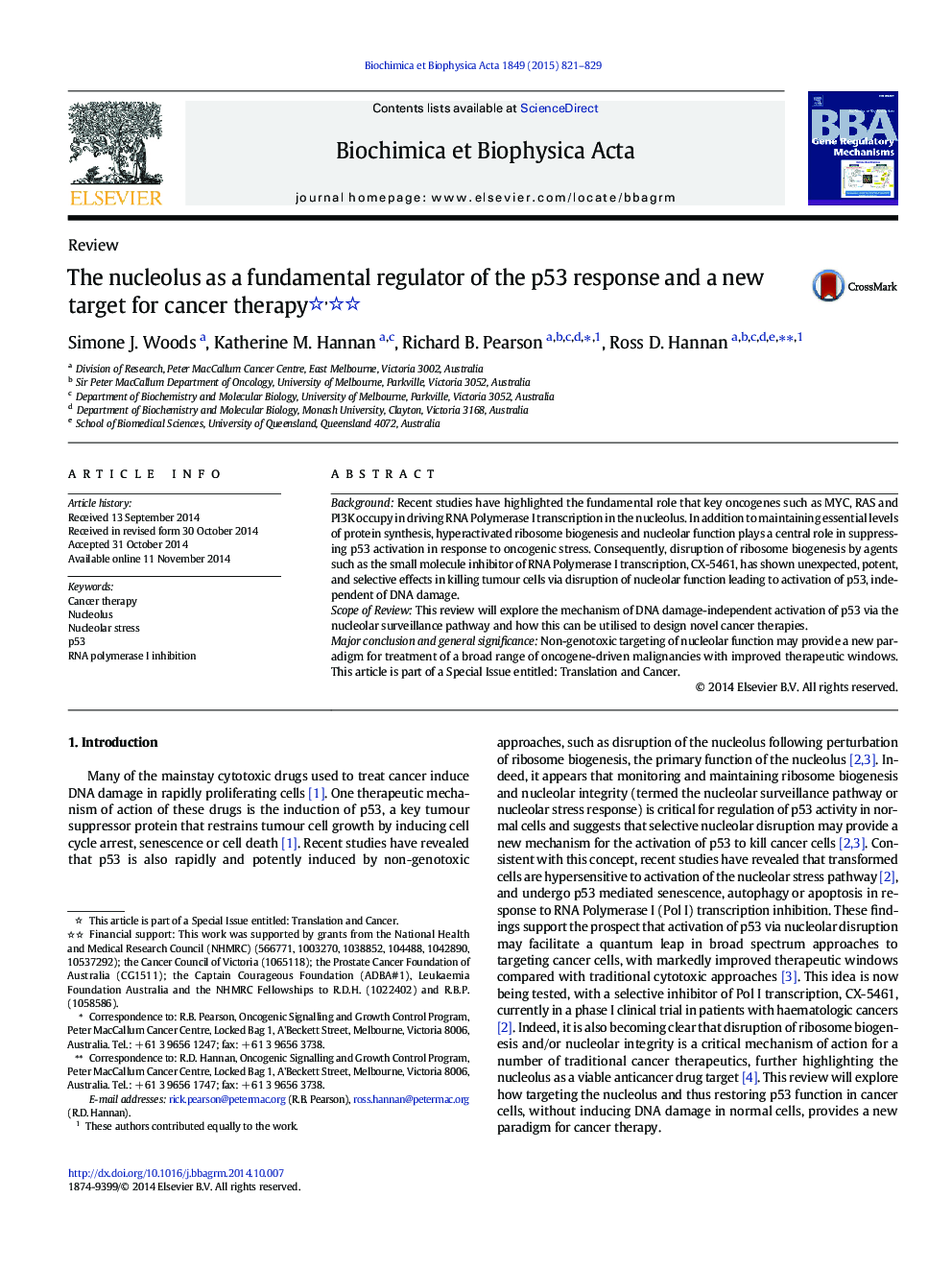| Article ID | Journal | Published Year | Pages | File Type |
|---|---|---|---|---|
| 1946402 | Biochimica et Biophysica Acta (BBA) - Gene Regulatory Mechanisms | 2015 | 9 Pages |
BackgroundRecent studies have highlighted the fundamental role that key oncogenes such as MYC, RAS and PI3K occupy in driving RNA Polymerase I transcription in the nucleolus. In addition to maintaining essential levels of protein synthesis, hyperactivated ribosome biogenesis and nucleolar function plays a central role in suppressing p53 activation in response to oncogenic stress. Consequently, disruption of ribosome biogenesis by agents such as the small molecule inhibitor of RNA Polymerase I transcription, CX-5461, has shown unexpected, potent, and selective effects in killing tumour cells via disruption of nucleolar function leading to activation of p53, independent of DNA damage.Scope of ReviewThis review will explore the mechanism of DNA damage-independent activation of p53 via the nucleolar surveillance pathway and how this can be utilised to design novel cancer therapies.Major conclusion and general significanceNon-genotoxic targeting of nucleolar function may provide a new paradigm for treatment of a broad range of oncogene-driven malignancies with improved therapeutic windows. This article is part of a Special Issue entitled: Translation and Cancer.
